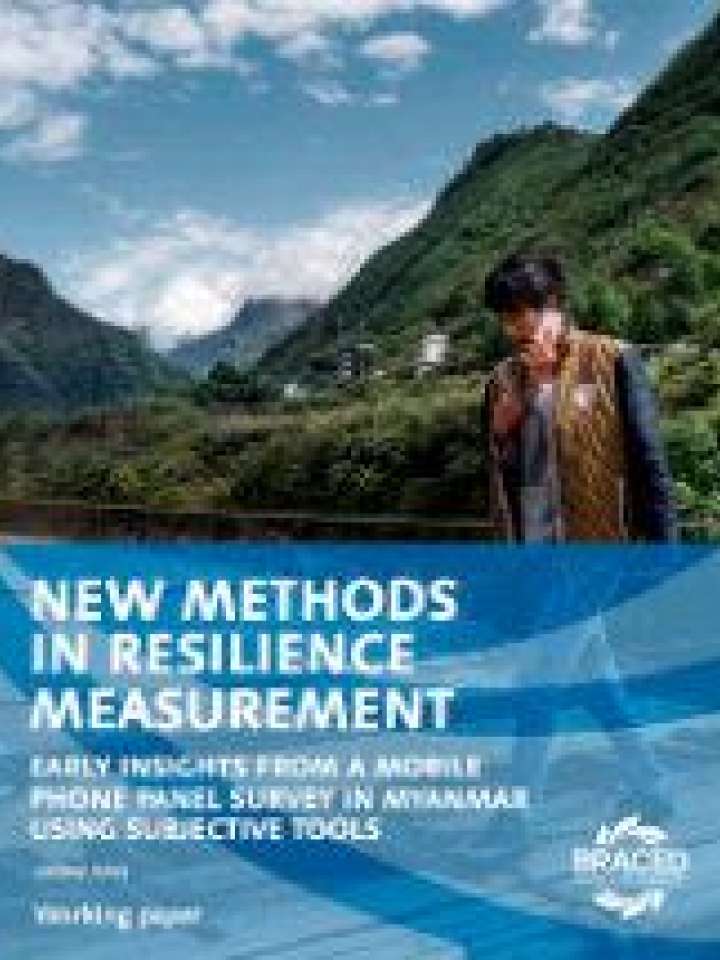New methods in resilience measurement: early insights from a mobile phone panel survey in Myanmar using subjective tools
This paper presents early insights from the Building Resilience and Adaptation to Climate Extremes and Disaster (BRACED) programme’s Rapid Response Research (RRR) in Myanmar, which is trialling two innovations. The first is the use of subjective approaches to resilience measurement that seek to use people’s knowledge of their own capacities to deal with risk. This contrasts with traditional ‘objective’ approaches that rely heavily on expert judgement and external verification to decide what makes other people resilient. The second is the use of mobile phones to collect near-real-time cheap panel survey data in post-disaster contexts.
Initial findings from the RRR survey show how subjective resilience is strongly associated with factors such as education, poverty, number of household occupants and well-being. While traditional objective assessments reflect many of these, a number of disparities exist between subjective and objective assessments – such as role of livelihood types and resilience of female-headed as against male-headed households. Levels of subjective resilience vary considerably across resilience-related capacities and depend heavily on whether we consider resilience to a wide range of overall shocks or to a specific hazard. The RRR will continue to collect data as part of efforts to track post-disaster recovery rates; this paper documents early lessons learnt in rolling out the mobile phone survey to help others interested in using either of the two techniques to measure resilience. Finally, this paper calls for greater innovation and experimentation in resilience measurement, recognising the need for a wide range of measurement tools to support the diverse contexts and assessment needs of the development community.
Explore further
